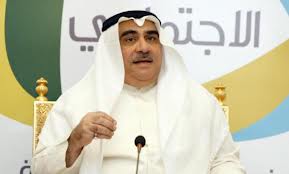
Addressing an International Labor Conference, he said that the Nitaqat program for Saudization of jobs launched in June 2011 has helped increase the percentage of Saudi workers in the private sector from 10 to over 13.
At the end of 2012, 615,000 male and female Saudi nationals were employed in the private sector.
He said the percentage of Saudi women who were employed in full-time jobs in the private sector witnessed an unprecedented increase.
The number of Saudi women employed for the first time in the private sector in 2012 reached 180,000, three times more than the employment figure before Nitaqat.
He told the gathering that the employment of differently abled people received special attention in the Nitaqat program. Since the launching of Nitaqat in 2011 until the end of 2012, 17,000 physically challenged people were employed.
He said the Ministry of Labor also launched the system to protect salaries in the private sector. Firms have been asked to pay salaries through banks. He said the ministry has started implementing this system in phases as of June 2013.
Fakieh said the Labor Ministry has completed the procedures for inspections to increase efficiency and transparency.
It has also completed preparing the occupational health and safety file in the Kingdom.
Fakieh said that necessary procedures have been approved to join ILO’s convention on minimum age for employment.
The convention adopted in 1973 by the International Labor Organization (ILO) requires ratifying states to pursue a national policy designed to ensure the effective abolition of child labor and to raise progressively the minimum age for admission to employment or work.
Countries are free to specify a minimum age for labor, with a minimum of 15 years.
A declaration of 14 years is also possible when for a specified period of time. Laws may also permit light work for children aged 13–15 (not harming their health or school work).
The minimum age of 18 years is specified for work which “is likely to jeopardize the health, safety or morals of young persons.
In its latest report released on Tuesday in Geneva, ILO called for an end to child labor in domestic work and adequate protection of young workers against abusive working conditions.
Statistics of the new ILO report showed that an estimated 15.5 million children (i.e. below the age of 18) were involved in paid or unpaid domestic work in the households of a third party or employer other than their own families, carrying out tasks such as cleaning, cooking and looking after other children, the sick and the elderly.
Of these children, about 10.5 million were in child labor either because they were below the legal minimum working age or were working in hazardous or even slave-like conditions, among whom 6.5 million were aged between 5 and 14 years old, and more than 71 percent were girls, the report noted.





Comments
Add new comment